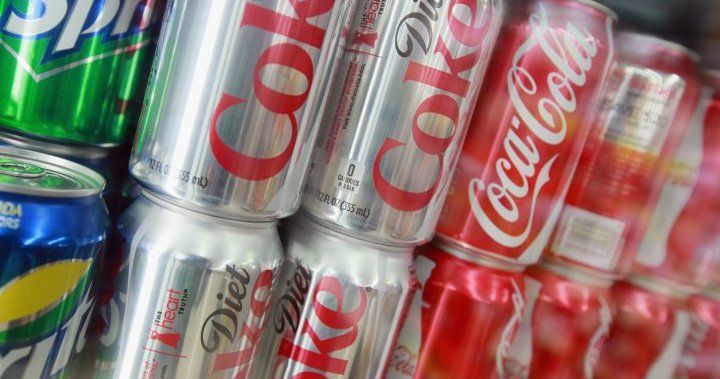Aspartame, a popular artificial sweetener used in sugar-free soft drinks, desserts, and chewing gum, has been warned by the World Health Organization (WHO) as a potential risk for cancer. However, experts interviewed by Global News are not overly concerned. The WHO’s International Agency for Research on Cancer (IARC) concluded that aspartame is “possibly carcinogenic to humans” based on limited evidence of a potential link to liver cancer. They are calling for further research to understand the potential health risks associated with aspartame consumption. The classification of aspartame as a possible carcinogen raises questions about its risks without providing definitive answers. Experts believe that the risk of cancer from aspartame consumption is very low, and the evidence supporting this risk is uncertain. Aspartame is commonly used as a sugar substitute in diet sodas and is often used by people with diabetes. The WHO’s conclusion does not recommend any change in the established acceptable daily intake (ADI) of aspartame. Currently, consuming 40 milligrams of aspartame per kilogram of body weight per day is considered acceptable. This translates to about nine to 14 cans of diet soda, which is a significant amount. The WHO advises moderation but does not recommend completely stopping consumption. Food and beverage groups welcome the findings but criticize the IARC’s classification, stating that it can confuse consumers. The WHO has previously advised against the use of artificial sweeteners for weight loss, as they may not have long-term benefits and could potentially increase the risk of type 2 diabetes and cardiovascular diseases. It is recommended to look for alternatives that do not contain either free sugars or sweeteners. Overall, more research is needed to fully understand the potential risks of consuming aspartame.

Possible Carcinogenicity of Aspartame: Unveiling the Risks
Denial of responsibility! Swift Telecast is an automatic aggregator of the all world’s media. In each content, the hyperlink to the primary source is specified. All trademarks belong to their rightful owners, all materials to their authors. If you are the owner of the content and do not want us to publish your materials, please contact us by email – swifttelecast.com. The content will be deleted within 24 hours.
